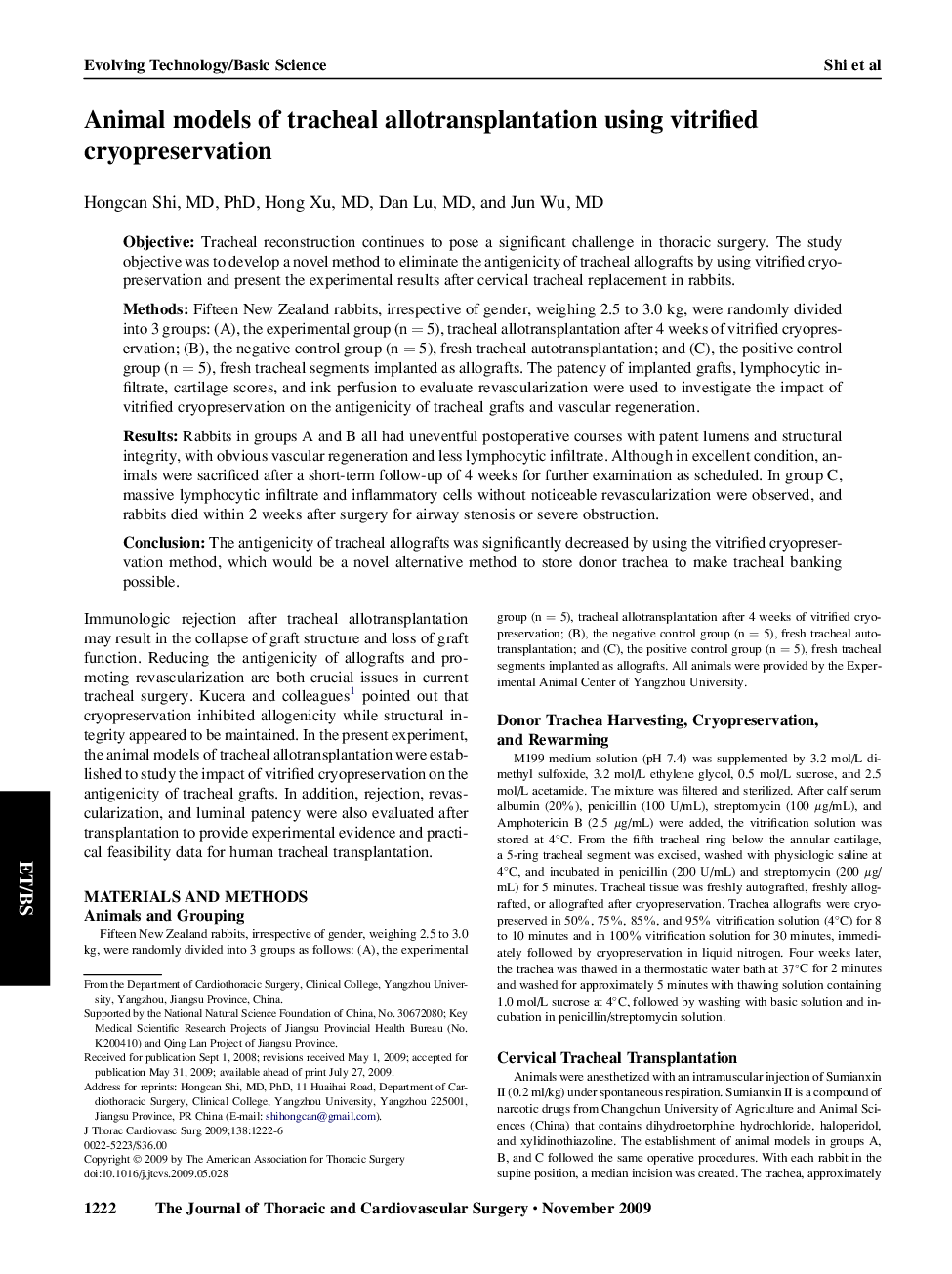| Article ID | Journal | Published Year | Pages | File Type |
|---|---|---|---|---|
| 2985254 | The Journal of Thoracic and Cardiovascular Surgery | 2009 | 5 Pages |
ObjectiveTracheal reconstruction continues to pose a significant challenge in thoracic surgery. The study objective was to develop a novel method to eliminate the antigenicity of tracheal allografts by using vitrified cryopreservation and present the experimental results after cervical tracheal replacement in rabbits.MethodsFifteen New Zealand rabbits, irrespective of gender, weighing 2.5 to 3.0 kg, were randomly divided into 3 groups: (A), the experimental group (n = 5), tracheal allotransplantation after 4 weeks of vitrified cryopreservation; (B), the negative control group (n = 5), fresh tracheal autotransplantation; and (C), the positive control group (n = 5), fresh tracheal segments implanted as allografts. The patency of implanted grafts, lymphocytic infiltrate, cartilage scores, and ink perfusion to evaluate revascularization were used to investigate the impact of vitrified cryopreservation on the antigenicity of tracheal grafts and vascular regeneration.ResultsRabbits in groups A and B all had uneventful postoperative courses with patent lumens and structural integrity, with obvious vascular regeneration and less lymphocytic infiltrate. Although in excellent condition, animals were sacrificed after a short-term follow-up of 4 weeks for further examination as scheduled. In group C, massive lymphocytic infiltrate and inflammatory cells without noticeable revascularization were observed, and rabbits died within 2 weeks after surgery for airway stenosis or severe obstruction.ConclusionThe antigenicity of tracheal allografts was significantly decreased by using the vitrified cryopreservation method, which would be a novel alternative method to store donor trachea to make tracheal banking possible.
